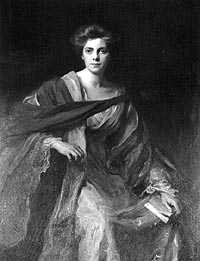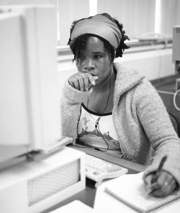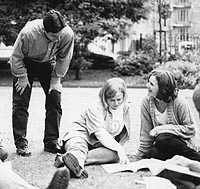Birkbeck College is ranked among the leading UK university institutions for its levels of national and international excellence in research in the humanities, social sciences and natural sciences. From this base of research excellence, which embraces a distinctive interdisciplinary approach in and between many of its departments, Birkbeck provides a unique range of degree and other courses designed specially to meet the needs of mature students.
Founded in 1823 as the London Mechanics’ Institution Birkbeck College was incorporated into the University of London by Royal Charter in 1920. Students registered at the College for University of London degrees are Internal Students of the University. Unlike other Colleges of the University of London Birkbeck not only provides a range of full-time postgraduate taught and research programmes for UK and international students, but fulfils a special mission also meeting the needs of over 5000 mature part-time evening students reading for first or higher degrees. In addition the College provides a range of special programmes which include.
History of Birkbeck University

The early years
On 2 December 1823, some 2000 people flocked to the Crown & Anchor Tavern on the Strand to witness George Birkbeck and his supporters launch London’s first ever Mechanics’ Institution, dedicated to the education of working people. The new establishment flourished, opening up the worlds of art and science to many ordinary Londoners. The “mechanics”, or skilled artisans of the day, were an eager audience. Early lectures spanned subjects from the physical sciences and political economy to languages and music; an innovative and “modern” curriculum. In some quarters though, the idea of learning for all sent a shiver down establishment spines. Some even accused Birkbeck, the son of a Yorkshire Quaker, of “scattering the seeds of evil”.
By the time he died in 1841, on the eve of the 18th birthday of the Institution which later adopted his name, George Birkbeck was widely hailed – and loved – as a champion of popular education. He was held in great esteem by many eminent men, noted one obituarist, but “among the mechanics, he was welcomed as a father”.
Equal access
It wasn’t long before staff at the fledgling college realised that a mission to extend educational opportunities had to apply to both sexes. Seven years after its foundation, the Institution opened its doors to women students, admitting them to lectures (though not full membership) in 1830. At a time when women were firmly placed in kitchens or hospital wards to be seen but rarely heard, this was considered revolutionary.
Women were among the teaching staff from the early days. In the 1892 Millicent Fawcett, later a well known suffragette, lectured on the problems of poverty. Thirty years later, Dame Helen Gwynne-Vaughan (pictured left) joined the Department of Botany as the College’s first female professor. Today, Birkbeck has twice the national average of women professors.

Parity for part-time students
Ratification of the University of London’s new charter in 1858 saw Birkbeck emerge as a provider of university education for people who could not afford to study full-time. This role was further cemented when Birkbeck became a School of the University in 1920, with the proviso that it should teach only evening and part-time students.
The War years
The College stayed open throughout the Great War, though student numbers inevitably fell sharply. It is estimated that one in four of Birkbeck staff and students who enlisted were killed. When war came again in 1939, Birkbeck was the only university to stay open during the Blitz despite receiving a number of direct hits in the bombing. Among the fire-fighters was a newly-arrived occasional lecturer, Nikolaus Pevsner, who could be seen scribbling away, seated on a bucket. The result was his classic, Outline of European Architecture, published in 1942.
Expansion
The College moved in 1951 from its war-damaged premises in Fetter Lane to Malet Street, marking a period of growth which has remained constant to this day. New departments included Crystallography, Occupational Psychology, Computer Science, Statistics, Economics, Politics and Sociology, Applied Linguistics and, more recently, Management and Business Studies, Law and the Centre for Extra Mural Studies, now known as the Faculty of Continuing Education.
Birkbeck Appeal
An Appeal was launched in Spring 1991 to supplement public funding and provide for the expansion of activities in the College. Approximately ?8 million was raised thanks to donations from companies, trusts and foundations, the City, current staff and former governors. The generosity of many donors supported the refurbishment of a major lecture theatre and three laboratories, the establishment of two new Departments (Management & Business Studies and Law which opened in 1992/93), growth in research and help for students in financial difficulties. In July 1997 the Secretary of State for Education and Employment opened the Clore Management Centre in Torrington Square, funded by a grant from the Clore Foundation. This provides purpose-built research and teaching facilities for the Departments of Management and Organizational Psychology.
From radical beginnings, Birkbeck has developed into one of the country’s leading specialists in part-time higher education, with nearly 6,000 degree students at any one time. A further 16,500 students are enrolled on courses offered by the College’s Faculty of Continuing Education, which delivers over 1,000 accredited diploma and certificate courses in local colleges across the Capital. The diversity of work undertaken at the College embraces the physical, social, political and economic sciences as well as the arts and humanities. In 1996, Birkbeck launched one of the first tutor-assisted university-level courses to be taught entirely over the Internet. Since then further on-line courses have enabled students in emerging economic regions to study at Birkbeck for a fraction of the cost of coming to Britain. Students are divided into tutorial groups according to their time zones, illustrating the truly global nature of the courses.
Birkbeck today
From radical beginnings, Birkbeck has developed into one of the country’s leading specialists in part-time higher education, with nearly 6,000 degree students at any one time. A further 16,500 students are enrolled on courses offered by the College’s Faculty of Continuing Education, which delivers over 1,000 accredited diploma and certificate courses in local colleges across the Capital. The diversity of work undertaken at the College embraces the physical, social, political and economic sciences as well as the arts and humanities. In 1996, Birkbeck launched one of the first tutor-assisted university-level courses to be taught entirely over the Internet. Since then further on-line courses have enabled students in emerging economic regions to study at Birkbeck for a fraction of the cost of coming to Britain. Students are divided into tutorial groups according to their time zones, illustrating the truly global nature of the courses.

New Faculty structure
A recent structural review has resulted in the creation of four Faculties – the Faculty of Continuing Education, the Faculty of Arts, the Faculty of Science and the Faculty of Social Sciences – each managed by a Dean. Departments, now grouped into Schools, have been allocated to a specific Faculty according to their core teaching and research activities. Each Faculty also boasts a new Research School. The new structure aims to make it easier for Birkbeck to achieve its historic mission in an increasingly competitive and rapidly changing environment. By clarifying the structure, potential students and funders will gain a clearer understanding of how Birkbeck operates as well as an insight into the range of teaching and research carried out at the College. It also facilitates the development of new courses, particularly interdisciplinary and multidisciplinary ones, ensuring Birkbeck meets the needs and interests of students more quickly. Research projects that cross conventional academic boundaries will also be easier to initiate and run.
for UK and international full-time postgraduates:
MPhil and PhD programmes MA and MSc programmes an interdisciplinary PhD programme in the humanities (in conjunction with the British Film Institute, Architectural Association School of Architecture and the Tate Gallery – The London Consortium)
for international (junior year) undergraduates:
the Birkbeck London Semester Programme (a one semester programme in conjunction with the Institute for Study Abroad)
Summer School Programmes
for part-time UK students:
BA, BSc, BSc(Econ) and LLB courses (four-year) Diploma and Certificate courses (1, 2 or 3 years) Faculty of Continuing Education courses including Certificate and Diploma courses Assessed courses Short courses
FACULTY OF ARTS – Dean: Dr Linda Mulcahy. Tel: 020 7631 6500
Schools in the Faculty of Arts:
School of English and Humanities Head of School: Professor Tom Healy. Tel: 020 7631 6070
School of History, Classics and Archaeology Head of School: Professor Dorothy Porter. Tel: 020 7631 6378
School of History of Art, Film and Visual Media Head of School: Dr Tag Gronberg. Tel: 020 7631 6118
School of Languages, Linguistics and Culture Head of School: Dr Itesh Sachdev. Tel: 020 7631 6117
School of Law Head of School: Professor Fiona Macmillan. Tel: 020 7631 6507/6510
School of Philosophy Head of School: Dr Barry Smith. Tel: 020 7631 6383
School of Politics and Sociology Head of School: Dr P John. Tel: 020 7631 6780
Research Centres:
Centre for Canadian Studies Contact: Dr I. Sachdev. Tel: 020 7631 6132
Centre for Nineteenth Century Studies Contact: Professor I. Armstrong. Tel: 020 7631 6078
Dialogues in History, Classics and Archaeology Research Centre Public Policy Centre Contact: School of Politics and Sociology. Tel: 020 7631 6780
Vasari Research Institute Contact: Professor F. Ames-Lewis. Tel: 020 7631 6110
The law faculty student retention rate is 20%. The faculty is not keen to resolve student issues. Students are not motivated to succeed. Lectures are boring and seminars is one way no student participation.
The faculty staff is cocoon in their academic world oblivious that mature students needs and aspiration. I left to study with a reputable and aspiring university. How can the faculty justified with a student retention rate of 20% and tendered the same excuses year end.
i’m niza..
i ‘m from indonesia.i have any question..the first question is
how to get scholarship from the birkbeck university and the second are there reformatory in this university? thank you
please answer.
I REALLY LIKE BIRKBECK UNIVERSITY OF LONDON, MY NAME IS HABEEB. IF YOU CAN HELP ME I WILL BE HAPPY TO JOIN. AND I PRAY I WANT TO BECAME STUDENT OF BIRKBECK UNIVERSITY I’M NIGERIA .PLEASE HELP ME FOR GOD SAKE. SEND DETAIL TO MY EMAIL {HABEEYB2008@YAHOO.COM
Good evening,I am currently a student at Campion College,Jamaica studying the Natural Sciences. My childhood dream has always been to pursue paediatrics. I would love to find out if your university offers this. Thank you for time.
dear sir.
Tahank you for letting me learn about Birbeck University of London.
Birkbeck university of London is such wonderful university.by reading much of its literature i fell so much impressed and with to study in it.
I have just finished my first of social science ( combined study; politics,economics and sociology ) at ruskin, Oxford.
Can I find a equivlant course at Birkbeck London as my family lives in London.
Also,I’m 47.
cheers
I want to write a letter to the school to confirm a students enrollment and completion of a masters degree program in Human Resources management and require to whom the letter be addressed.